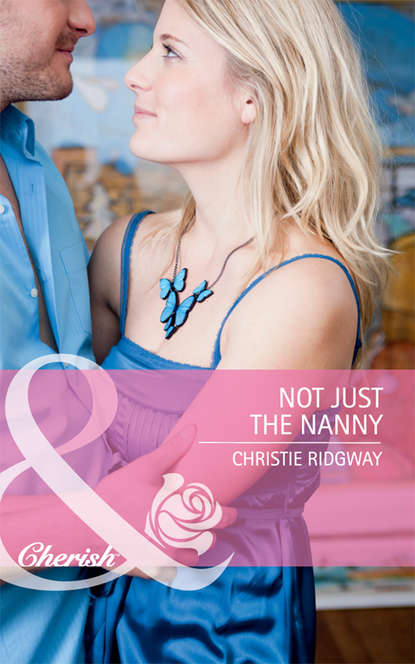
Полная версия
A Bride Worth Waiting For
She laughed softly to herself.
‘You are perverse. One minute it’s too noisy, the next it’s too quiet. Nothing’s ever right.’
Still, from Monday things would liven up with the refurb starting. And she’d finally get to meet her landlord, the broodingly sexy Michael Harding. Whatever that implied.
Well, she hoped it turned out right and he didn’t have an ulterior motive. Here she was trying to work out what broodingly sexy might mean, when all the time he might be going to give her notice or put up her rent. It wouldn’t be unreasonable if he did, but it would be the last straw.
Roger’s pension kept the girls in uni. The tearoom provided the means to keep her and Stephen and run the house, but the balance was fine and she didn’t need anything unexpected thrown into the equation.
There was always the trust fund, but she had no intention of touching that, even if she could. It was Stephen’s, from some unknown distant cousin who’d died intestate; it had been passed down to him as the man’s youngest living relative, which was apparently how the law worked. She wasn’t going to argue, and as only one of the trustees she wasn’t sure she could get access to it, even to provide for her son. Still, to know it was there was like a safety net, carefully invested for the future.
Whatever that might hold. Maybe Monday would bring some answers.
She went home, cutting the corner to where their pretty Georgian house stood at right angles to the tearoom, centred on the left hand side of the square. Like the Ancient House, Beech House occupied a prominent position in the centre of the village, its elegant, symmetrical façade set back behind a low wall enclosing the pretty front garden.
The fact that it was so lovely hardly ever registered with Annie, though. For her, the main feature was its convenience. It was handy being so close. That was why Liz had chosen to open the tearoom there, of course, and its proximity had been a godsend while the children were young.
It didn’t feel like home, though. It never really had. She was like a caretaker, and with Roger gone and the girls flying the nest she wondered what on earth she was going to do with it. Keep it for ever, so the girls felt they could always come home? Or just until Stephen was eighteen?
Another nine years. Heavens. The thought of another nine years of this was enough to send her over the brink.
She closed the door behind her, leant back on it and listened to the silence. She was right, it was too quiet, and Stephen with his bubbly chatter wouldn’t be home until eight. God, the house was so empty.
She made herself a cup of tea, then settled down on the sofa in the little sitting room to watch the news for company. She kicked off her shoes, tucked her feet under her bottom and flicked on the TV with the remote control.
And then she froze, riveted by the commentary and the picture she saw unfolding before her eyes.
‘—a vineyard in the Rhône valley, high up on the steeply terraced hillside where only the most exclusive wines can justify the exorbitant labour costs for handpicking the grapes—unless, like Claude Gaultier, you use a migrant workforce.’
The reporter waved an arm behind him at the serried ranks of vines, bursting with fruit just starting to ripen. ‘For the past eleven years, the vines here have been worked by what amounts to slave labour, the workers kept in very basic accommodation and forced to work hugely long hours in appalling conditions on these steep mountainsides to bolster Gaultier’s extortionate profit.’
The picture scanned over the familiar scenery, the bunkhouse, the farmhouse where she’d cooked, the winery, the terraces where they’d walked hand in hand—
‘All the workers were young men, most of whose parents had paid extraordinary sums to give them an opportunity to escape from countries such as Albania to the riches of Western Europe. They were lied to, cheated for the sake of money, but at least these young men were only forced to work hard. The young women, on the other hand, were shipped all over Europe and sold into prostitution, many of them in London and Manchester, and the fate of these innocent girls has been far worse. The dawn raid today, the culmination of a decade of work by the security services of several countries, has seen many of Gaultier’s accomplices arrested. Gaultier himself, the mastermind behind this hideous empire trafficking in innocent lives, died resisting arrest when his house in Antibes was stormed this morning, and it must be said there will be few tears shed for this most evil and wanted of men.’
The picture returned to the newsroom, and Annie stared blankly at the screen.
Dear God. She’d always known the conditions there were dreadful, but she’d had no idea they were that bad. People-trafficking? Slave labour? She’d not really been involved with the labour force, more with the managers. Like Etienne. And Etienne had taken her mind off anything but him, from the moment she’d set eyes on him…
‘Bonjour.’
She looked up, her heart hitching into her throat at the slow, lazy lilt of his voice. Blue eyes, a smile that started gradually and kicked up both corners of his mouth to reveal perfect, even teeth—no. Not perfect. Not quite. One of them was chipped, and his nose was nothing to write home about, but the smouldering eyes and the lazy smile were enough to counteract that in spades.
‘Bonjour,’ she replied, her hand hovering over a steaming dish of lamb casserole. ‘Desirez-vous un peu de ragout?’
The smile widened. ‘Tu,’ he murmured. ‘Vous is too—how you say—formal?—for me.’
She felt herself colouring. ‘Oh. Sorry. I thought it was correct.’
He grinned. ‘It is—but we do not need to be correct, hein, you and me?’
She found herself smiling back, her heart fluttering against her ribs like a thing demented. Her hand still hovered over the casserole, her eyes trapped by his. ‘How did you know I was English?’ she said breathlessly.
‘Your delightful accent,’ he replied, in a delightful accent of his own, and her heart melted into a puddle at his feet. He held out his hand. ‘Etienne Duprés—at your service, mademoiselle.’
‘Annie Shaw,’ she said breathlessly, and he took her hand, wrapping it in warm, hard fingers. His thumb slid over the back of it, grazing it gently, sending shivers up her spine while his eyes locked with hers.
‘Enchanté, mademoiselle,’ he murmured, then after an age he bent to press his lips to her hand—but not the back. Oh, no. He turned it over and pressed his lips firmly and devastatingly to the palm, then folded her fingers over to enclose the kiss and straightened up to meet her eyes again, a slow, sexy grin teasing at his mouth.
He wasn’t the only one who was enchanted. Annie could hardly think straight for the rest of the meal, dishing up for the family and the skilled staff. The grape-pickers had their own catering arrangements in the bunkhouse, and her job was to help Madame Chevallier to cook for the permanent staff who ran the vineyard. And if she didn’t want to lose her job, she’d better concentrate on what she was doing.
Finally they were all served and seated, and she took her own meal and went and sat in the only space left. Which just happened, by a curious coincidence, to be next to Etienne Duprés.
‘You must be new here; I haven’t seen you,’ she said, but he shook his head.
‘I have been away—en vacances. On holiday?’
She nodded. ‘I wondered.’
‘So you have been thinking about me. Bon,’ he said with satisfaction. ‘And you must be new here.’
She nodded again. ‘I’m here for the harvest. I’m sorry, my French is dreadful—’
He waved a hand dismissively. ‘I’m sure we understand what is necessary,’ he said, and his eyes locked with hers again, their message unmistakeable.
‘You’re outrageous,’ she told him, blushing, and he laughed, not a discreet chuckle but the real thing, throwing back his head and letting out a deep rumble of a belly-laugh that had all the others smiling and nodding and ribbing him.
‘No, mademoiselle, I only tell the truth.’
And he was right, of course. She could understand enough of the muddle of his French and English to know precisely what he was trying to say to her, and he seemed to be able to understand English better than he could speak it, so between them they managed.
After all, it didn’t take much facility with the language to walk side by side along the rows of vines in the setting sun, and to pause under the spreading branches of an old oak tree and exchange slow, lingering kisses.
That was all they ever did, and then he’d sigh and turn back to the path and wrap his arm around her, tucking her into his side and shortening his stride to hers as they strolled back to the farmhouse. On her nights off he took her to the village and they sat in the bar and talked in their halting French and English until late, then he walked her home, pausing to kiss her under the tree.
She learned that he was an estate manager, that he’d trained in Australia and California, that he had been brought in to supervise the production of the exclusive and very expensive wine produced here. She told him she had trained as a cook, but was going to run a tearoom—a café—called Miller’s, with a friend in a village in Suffolk on her return.
He seemed interested, so she told him about Liz Miller, and about their plans and how Liz was getting it off the ground now and how they’d share it when she got home, and he grinned and promised to come and visit her. ‘To take tea—in Miller’s, a very English tearoom. I shall look forward to this. After the harvest,’ he promised, and she believed him.
She learned to tease him, and he teased her back. One evening as they sat in the bar she reached out a hand and ran her fingertip down the bumpy and twisted length of his nose. ‘What happened to it?’ she asked, and he laughed.
‘I was—pouf!’ he said, making a fist and holding it to his nose and grinning.
‘You had a fight?’
He nodded, blue eyes laughing.
‘Don’t tell me—over a woman?’
The grin widened. ‘Mais oui! What else is there to fight about?’
She chuckled. ‘And did you win?’
‘Bien sur! Of course. I always win the lady.’
‘And was she married, this lady?’ she asked, suddenly needing the answer to be no, and he frowned, serious for once.
‘Non. Of course not. I would not do that. I am—how do you say it? A gentleman.’
And he was. He walked her home, kissed her lingeringly, sighed and handed her in through the door like the gentleman he said he was, then wandered off, whistling softly under his breath.
A week later, one cold October night, he seemed different. Distracted, somehow, and for once not focusing on her with that strange intensity, as if she was the centre of his world. At least not then, not in the bar, but later on the way home he drew her off the path, away from the farm buildings and up into a little wood, then he turned her into his arms and kissed her in a way he’d never kissed her before.
His body was strong and lean and full of coiled energy, warm and hard under her hands, his heart pounding against her chest, a strange urgency about him. He’d always been playful before, but that night there was no time for play. He kissed her as if he’d die without her, touched her as if she was the most precious thing in the universe. They made love then for the first and last time, on a bed of fallen leaves under the stars, and in his arms she found a happiness she’d never even dreamed of.
She’d been totally innocent, but he’d been so gentle, so thorough, so—incredible—that she’d felt no pain, only joy and an unbelievable rightness.
Afterwards he walked her back, kissing her once more as he left her at the door of the farmhouse, his touch lingering.
Struck suddenly by some sense of evil, she pulled off her ring and gave it to him, pressing it into his hand.
‘Here—have this. It was my grandmother’s. It’s a St Christopher. It will keep you safe.’ And she reached up and kissed him again. ‘Take care, my love,’ she whispered, and his arms tightened for a second before he let her go.
He murmured something. She didn’t really catch it. It sounded curiously like, ‘Au revoir,’ but why would he be saying goodbye? So final, so irrevocable. It sent a shiver through her, and after she went to bed she lay and thought about it.
She must have misheard. It could have been ‘Bonsoir’, although even she knew that meant good evening and not goodnight. And anyway, he usually told her to sleep well. But ‘Au revoir’? Until we meet again? That seemed too final—not at all like goodnight. It puzzled her, but she convinced herself she must have heard it wrong, until the following day when she went down to make breakfast and found Madame Chevallier in tears.
A chill ran over her, and she hurried to her side, putting her arm around the woman who’d become her friend. ‘Madame?’
‘Oh, Annie, ma petite—je suis desolée. I’m so sorry.’
‘Pardon? Madame, what is it? What’s happened?’
‘Oh, mon Dieu. C’est terrible. Etienne—il est mort! Dead—et Gerard aussi. Oh, mon Dieu!’
Panic flooded her. Panic and the first terrible, overwhelming crush of grief. She sucked in a huge lungful of air, then another, fighting off the pain. ‘No. You’re wrong. You’re lying! He can’t be dead!’
But Madame shook her head and wept, her whole body shaken with sobs, and Annie realised it must be true.
‘No…Dear God, no.’
She looked outside and saw the gendarme talking to Monsieur Gaultier, both of them shaking their heads in dis-belief, and she ran out past them, up to the place where he’d taken her in his arms and made love to her with such passionate intensity just a few short hours before. Such exquisite joy—
‘Etienne, no. You can’t be dead,’ she wept, falling to the soft, sweet earth where she’d lain with him so recently. ‘No! It’s not true.’
The sobs racked her body endlessly, the pain tearing her apart cell by cell, leaving her in tatters.
Madame found her there, prostrate with grief, and helped her back to the house.
‘I have to go and see him,’ she said. ‘I can’t believe—’
So Madame Chevallier called a taxi, and she went first to the village, but the gendarme wouldn’t talk to her. Then she went to the town where it had happened, where the hospital was and the morgue, but the information was even less forthcoming.
The only thing she was sure of was that he was gone, but even his death she had to take on trust. She wanted to see his body, to say goodbye, but she was told his family had taken it already, and no, she couldn’t be given their details.
‘It is gone, mademoiselle. You cannot see him. You must go home.’
Home. It was the only thing in her suddenly topsy-turvy world to make sense. She’d go home, to the only people who really cared about her. Liz and Roger would look after her. She went back, packed her things and set off. She should have phoned them, but she couldn’t bring herself to say the words, and so she made her way to Calais and took the first available crossing, caught the train from Dover and arrived back at ten that night, going straight to their house.
Roger answered the door, his face haggard, and Annie, even through her grief, could see that something was terribly, horribly wrong.
A shiver of dread ran down her spine. ‘Roger?’ she whispered. ‘What’s happened?’
‘It’s Liz,’ he said, and then he started to cry, dry, racking sobs that tore her apart.
‘Where is she?’
‘In bed. Don’t wake her. She’s got a headache. Annie, she’s dying—’
A brain tumour. Roger told her the bare bones, but Liz filled her in on all the details in the morning, sitting at the kitchen table after the children had gone to school.
‘Inoperable?’ she echoed hollowly. ‘Are they sure?’
‘Oh, yes. I’ve had every kind of scan, believe me.’ Liz searched Annie’s eyes, and frowned. Even then, in the midst of such agony, she noticed that something was wrong. Her hand found Annie’s, gripping it hard. ‘Annie, what is it? What’s happened to you? You shouldn’t be home yet. What’s going on? You look awful, my love.’
She swallowed the tears, not wanting to cry about something that must seem so remote to this very dear friend in the midst of her own grief, but unable to hold them back. ‘Etienne’s dead.’
Liz’s face was shocked. ‘What? How? Why?’
She shook her head. ‘I don’t know. All they’d tell me was he’d been mugged in an alley in the town. He was with another man, and he was killed, too. They were beaten to death—’
‘Who would do such a thing? Do they know who did it?’
She shook her head. ‘I don’t think so. They wouldn’t tell me much. I just—Liz, I can’t believe it. First him, and now you—’
And then the dam burst, and they held each other and wept the raw, bitter tears of grief…
The gravel crunched under his tyres as he drew to a halt, cut the engine and got out, a lump in his throat. He was about to ring the doorbell when an elderly terrier trotted round the corner of the house and came up to him, sniffing.
‘Nipper?’
The dog pricked his ears, whined and jumped up at him, his stubby little tail thrashing wildly in apparent recognition, and the lump in his throat just got bigger.
‘Nipper, it is you,’ he murmured. ‘I can’t believe it! What a good old boy!’ He crouched down, and the dog lashed his face with his tongue in greeting, all the time whining and wagging and wriggling furiously under his hands, unable to get enough of his old friend.
‘Nipper! Nipper, get down! Bad dog. I’m so sorry. Nipper!’
He straightened slowly, taking in the changes that time had carved in his godmother’s face. The lump wedged itself in his throat, so that for a moment he couldn’t speak but could only stand there and let the homecoming fill his heart.
‘I’m so sorry about that. What can I do for you?’ she said, moving closer, and then suddenly she stopped, her hand flying to her mouth, the secateurs clattering unheeded to the ground at his feet. ‘Michael?’ she whispered sound-lessly, and then recovered herself. ‘I’m so sorry. For a moment there, I thought you were someone else—’
‘Oh, Peggy, I might have known I wouldn’t fool you,’ he said gruffly, and he felt his face contort into a smile as his arms opened to receive her…
A river of tears later, they were sitting in the kitchen, his godmother on one side, his godfather on the other, catching up on nine very long years while the dog lay heavy on his feet, endlessly washing his ankle above the top of his sock as if he couldn’t believe his old friend had really returned.
The dog wasn’t alone. Peggy kept touching his face, her fingers infinitely gentle and tentative, getting to know the new him.
‘It doesn’t hurt,’ he assured her quietly. Not much, at least. Not with the painkillers.
‘But it did. It must have done.’
He nodded. ‘Yes. It did. I’m glad you didn’t see it.’
She shook her head. ‘We should have been there for you.’
‘It wasn’t possible. It wasn’t safe. I’m sorry they had to tell you I was dead.’
‘I knew you weren’t,’ she told him. ‘The flowers on my birthday, the cards. They said you were dead, but I knew.’
‘I didn’t believe her,’ Malcolm said. ‘I thought she was imagining it. At one point I thought she had a secret admirer—someone from the local horticultural society.’
‘Silly man,’ Peggy said with a fond smile. ‘As if.’ She paused, then went on, ‘I don’t suppose you can tell us—’
He gave a twisted smile. ‘You know better than to ask that. I’ve told you all I can. It’s all over the television, anyway—and all that really matters is that it’s over and I’m alive—even if I don’t really look like me any more.’
His godfather nodded wordlessly. ‘If I may say so,’ he muttered gruffly, ‘the nose is better.’
He chuckled. ‘I agree. The nose is a bonus. The headaches I could live without, and the teeth aren’t great. At least they don’t go in a glass at night, though, so I should be thankful for small mercies.’
‘So—I take it they gave you a new identity? Who’ve you been all this time?’
‘Michael Harding.’
‘Oh—like the thriller writer. How ironic. I’ve read all his books…love ‘em. Fancy you having the same name.’
‘I am the writer,’ he said diffidently, and shrugged. ‘I had to do something while I was marking time, and I thought I might as well put all that experience to good use. I had no idea it was going to be such a success or that I’d love it so much.’
Peggy’s eyes filled again and she nodded slowly. ‘I wondered if it was you. I could hear your voice in the words. Oh, Michael, I’m so proud of you!’
Malcolm’s hand curled round his shoulder, squeezing tight as he stood up. ‘Absolutely. And your parents would have been proud—very, very proud, and with good reason. Many good reasons.’
‘Thank you,’ he said gruffly, unbearably touched. ‘I’m just glad they didn’t have to go through what you have done.’
‘Amen to that.’ He harrumphed and made a great production of clearing his throat. ‘Well, I think this calls for a drink,’ he said, retrieving a bottle of champagne from the fridge and putting three flutes on the table. He stripped off the foil and twisted the wire cage, just as Michael put his hand in his pocket.
‘There’s something else you should know,’ he said, and pulled out a photograph and slid it on to the table. ‘It seems I have a son.’
The cork popped loudly in the silence and, while the wine foamed unheeded over Malcolm’s hand, Peggy started to weep again.
Конец ознакомительного фрагмента.
Текст предоставлен ООО «ЛитРес».
Прочитайте эту книгу целиком, купив полную легальную версию на ЛитРес.
Безопасно оплатить книгу можно банковской картой Visa, MasterCard, Maestro, со счета мобильного телефона, с платежного терминала, в салоне МТС или Связной, через PayPal, WebMoney, Яндекс.Деньги, QIWI Кошелек, бонусными картами или другим удобным Вам способом.












